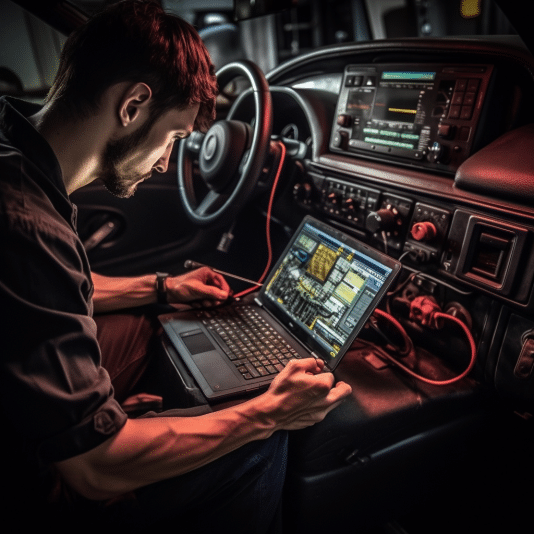Introduction to Vehicle Diagnostics
Ever heard that unsettling clunking noise from your car and wished you could find out what's causing it? Welcome to the world of vehicle diagnostics. Vehicle diagnostics is a comprehensive process used to identify and address potential problems in a vehicle before they become significant issues.
The Importance of Vehicle Diagnostics
Safety
A proper diagnostic procedure can uncover issues that may pose a safety risk. The purpose is to catch these problems early and avoid accidents or breakdowns that could endanger you and other road users.
Cost-effectiveness
Regular vehicle diagnostics can save you money in the long run. How so? Simple! Detecting minor problems early prevents them from escalating into more serious, expensive repairs.
Performance Maintenance
Beyond safety and savings, vehicle diagnostics ensure your vehicle runs smoothly and efficiently. After all, who doesn't love a car that offers a flawless ride?
The Vehicle Diagnostic Process
Initial Inspection
Every vehicle diagnostic process begins with an initial inspection. This involves a visual check of the vehicle, listening for unusual noises, and perhaps a test drive. You'd be surprised how much you can find out with your senses!
Diagnostic Tools and Technologies
The real magic happens when technology comes into play. Mechanics use various diagnostic tools, from OBD-II scanners and oscilloscopes to multimeters, to delve deeper into your vehicle's health.
Identifying Common Vehicle Issues
The diagnostic process can pinpoint various vehicle issues, from trouble starting the engine to unusual exhaust smoke. Common problems include faulty spark plugs, worn-out brake pads, or a compromised exhaust system, to name a few.
Understanding Diagnostic Trouble Codes
Your vehicle's onboard computer system can generate diagnostic trouble codes (DTCs) when it detects a problem. These codes can be read using an OBD-II scanner, providing insights into potential issues.
The Role of Professionals in Vehicle Diagnostics
Ever heard the saying, "Leave it to the professionals"? There's some truth in that, especially regarding vehicle diagnostics. Trained professionals have the expertise and tools to diagnose vehicle issues and recommend solutions accurately.
DIY Vehicle Diagnostics
When to Attempt DIY Diagnostics
DIY diagnostics can be helpful for basic issues. If you're handy and have the right tools, you might be able to identify the problem yourself. However, it's best to seek professional help for more complex issues.
Tools Needed for DIY Diagnostics
An essential toolkit for DIY diagnostics might include an OBD-II scanner, a multimeter, and maybe a car jack. Remember, though, diagnosing a vehicle issue is only the first step. The real work is fixing it!
Conclusion
Vehicle diagnostics is vital in maintaining your vehicle's health and safety. While there's a place for DIY diagnostics, don't hesitate to contact the professionals when needed. It's all about knowing when to take the reins and when to pass them on.
FAQs
- What is vehicle diagnostics? Vehicle diagnostics is a process used to identify potential problems in a vehicle.
- How often should I get a vehicle diagnostic? It depends on your vehicle's age and condition, but a good rule of thumb is to have one at least once a year.
- Can I do vehicle diagnostics myself? For fundamental issues, yes. But for more complex problems, it's recommended to seek professional help.
- What tools do I need for DIY vehicle diagnostics? Some essential tools include an OBD-II scanner and a multimeter.
- What is an OBD-II scanner? An OBD-II scanner is a device that reads diagnostic trouble codes (DTCs) from your vehicle's onboard computer system.

